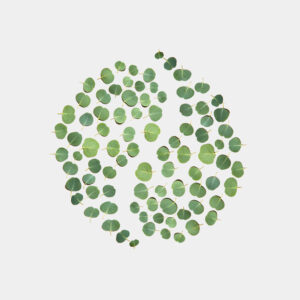5 NATURAL SLEEP REMEDIES
From Eastern Medicine

More than 50 million Americans have trouble falling asleep, so if you’re struggling to drift off to dreamland, you’re not alone. According to the CDC, 1 in 3 people in the US don’t get enough sleep on a regular basis.
Sleep is the time our bodies and minds take to rest, recharge, and learn. That’s why it’s so important to make sure you snooze for at least 7 hours a night.
Not all sleep troubles are same. Some people struggle to fall asleep, while others can’t stay asleep. Then, there’s the uber busy, modern day person who just can’t get enough sleep. If you’re looking for a solution to your sleep-related woes, eastern medicine may have some solutions for you. Read on to learn more about what causes problems with sleep and 5 natural remedies from Eastern medicine to help you rest up.
Why Am I Having Trouble Sleeping?
 Sometimes it feels like half the problem with insomnia or other sleep problems is that you don’t understand why it’s happening. You want to go to sleep–but something is stopping you. Across eastern medicine, there are a few ideas about what causes problems related to sleeping.
Sometimes it feels like half the problem with insomnia or other sleep problems is that you don’t understand why it’s happening. You want to go to sleep–but something is stopping you. Across eastern medicine, there are a few ideas about what causes problems related to sleeping.
Chinese Medicine: Qi, Yin, and Yang
 In TCM, there’s something called qi or chi. Qi is an energy force within you that is balanced by two opposing forces–yin and yang. Yin is thought to be dark and passive, while yang is bright and active. According to traditional Chinese belief, achieving balance between these opposing yet intertwined forces of yin and yang is the key to happiness and health.
In TCM, there’s something called qi or chi. Qi is an energy force within you that is balanced by two opposing forces–yin and yang. Yin is thought to be dark and passive, while yang is bright and active. According to traditional Chinese belief, achieving balance between these opposing yet intertwined forces of yin and yang is the key to happiness and health.
Throughout the day, the levels of yin and yang within our bodies wax and wane. The bright, hot power of yang takes over during the day, while the cool and calm force of yin is predominant at night. When these opposing forces of yin and yang are disrupted, you may experience problems sleeping. If you sleep too much, you probably have an overabundance of yin, while those who struggle to sleep enough likely contain too much yang.
As a result, sleep remedies from TCM serve to rebalance the forces of yin and yang.
Ayurvedic Belief
 Ayruveda is the world’s oldest holistic health system, originating thousands of years ago in India. Like TCM, Ayurvedic medicine stresses the importance of balance in the mind and body.
Ayruveda is the world’s oldest holistic health system, originating thousands of years ago in India. Like TCM, Ayurvedic medicine stresses the importance of balance in the mind and body.
While TCM believes in the forces of yin and yang, Ayurvedic medicine believes that everybody is made up of 5 natural elements: space, air, fire, water, and earth. These elements combine in our bodies to form 3 different energies or dosha. These are Vata dosha (space/ether and air), Pitta doshas (fire and water), and Kapha dosha (water and earth). Everyone has these, but one is usually much stronger than the other.
In Ayurvedic medicine, sleep disorders are caused by imbalances in these doshas. If you have trouble stopping yourself from thinking about your day and relieving the thoughts and emotions of it, you may have a Vata sleep imbalance, which is connected to learning and remembering. You might have trouble falling asleep or staying asleep with a Vata imbalance.
On the other hand, if you can fall asleep easily but tend to wake up far too early and can’t go back to sleep, you have a Pitta-based sleep disorder. And if you oversleep but still feel tired, you may have problems with your Kapha dosha.
5 Eastern Sleep Remedies To Help You Get Some Rest
Now that you know a little bit about how eastern medicine thinks about sleep disorders, it’s time to talk about the remedies. When melatonin and sleeping pills either don’t work or don’t seem appealing, hope is not lost. You can try one of these 5 natural sleep remedies from Ayurveda and TCM.
Have A Routine
 Most medical traditions agree that it is important to have a bedtime routine to encourage your body to fall asleep and stay asleep. In Ayurvedic medicine, it’s important to get to bed before 10 pm and focus on calming your mind and body before you rest. In traditional Chinese medicine, it is believed that you should rise and go to sleep with the sun. Keeping a natural sleep rhythm like this helps to balance our yin and yang.
Most medical traditions agree that it is important to have a bedtime routine to encourage your body to fall asleep and stay asleep. In Ayurvedic medicine, it’s important to get to bed before 10 pm and focus on calming your mind and body before you rest. In traditional Chinese medicine, it is believed that you should rise and go to sleep with the sun. Keeping a natural sleep rhythm like this helps to balance our yin and yang.
More Yin, Less Yang
In Chinese medicine, if you can’t get to sleep you probably have too much yang in your body and not enough yin. However, you can rebalance these forces simply by changing what you eat and drink. To lessen the amount of yang, you can stop drinking alcohol and caffeine and avoid foods that are sweet or spicy. To increase your yin, opt for foods like tofu, cucumber, and watermelon.
Take A Warm Bath
 A warm bath is the perfect addition to your nighttime routine if you’re having trouble falling asleep. Ayurvedic medicine recommends you incorporate essential oils like jasmine and rose into your bath because these have destressing and purifying powers. This should encourage your mind and body to slow down and rest.
A warm bath is the perfect addition to your nighttime routine if you’re having trouble falling asleep. Ayurvedic medicine recommends you incorporate essential oils like jasmine and rose into your bath because these have destressing and purifying powers. This should encourage your mind and body to slow down and rest.
Warm water is also important for traditional Chinese medicine sleep remedies. By submerging your feet and legs in warm water and massaging your feet, you can encourage the blood to flow away from your mind and towards your legs. You can even add ginger to the water to encourage yang energy. This should encourage your yin and yang to rebalance before bed.
P.S. Bathing has been proven to reduce stress – read more here!
Mindful Breathing
In Ayurvedic medicine, there is a practice known as Brahmari breathing. Before bed, focus on slowing and deepening your breath. When you exhale, slowly say “ohm.” This can help to quiet your mind and prepare you for rest.
You can also try alternate nostril breathing, another Ayurvedic technique. Sit on your bed with your eyes closed and use your finger to close the right nostril. Breathe in through the left, then switch nostrils, closing the left and breathing out through the right. Doing this for about 10 minutes will decrease your Vata and help you fall asleep. For more
Meditation
 Meditation is such a popular and effective eastern medicine method for reducing sleeplessness that many western medical professionals recommend that practice as well. In TCM, emotions like anger and frustration can increase our amounts of yin, making it harder to fall asleep. To relieve your body of this extra yin, meditation can help calm the body and the mind.
Meditation is such a popular and effective eastern medicine method for reducing sleeplessness that many western medical professionals recommend that practice as well. In TCM, emotions like anger and frustration can increase our amounts of yin, making it harder to fall asleep. To relieve your body of this extra yin, meditation can help calm the body and the mind.
There are lots of apps and free YouTube videos with guided meditations, but all you really need to do is relax your body and clear your mind. Focus on breathing deeply and try to clear your mind. Observe your thoughts from a distance, making sure not to get caught up in them. This will calm intrusive thoughts and relax the muscles in your body, making it much easier to fall asleep. Like anything, meditation can require some practice, so don’t get discouraged if it takes a few weeks to start seeing the benefits of your practice.
Herbs
Herbal remedies like Suan Zao Ren Tang, based on zisiphysis seeds, can help you sleep while passionflower tea is good for people whose mental chatter keeps them awake. In the journal PLOS, one study examined the effects of drinking non-alcoholic beer with hops at dinnertime. The researchers found that women who drank it showed improvements in their sleep quality. Other studies have shown that the scent of lavender, tea, sachet or inhaled essential oil forms can work better in the elderly than conventional sleeping pills.
Everyone has trouble sleeping at some point in their lives, and different techniques work for different people. What methods have you used? Will you incorporate any of these eastern sleep remedies? Let us know!
Comments (0)
Leave a reply
You must be logged in to post a comment.




